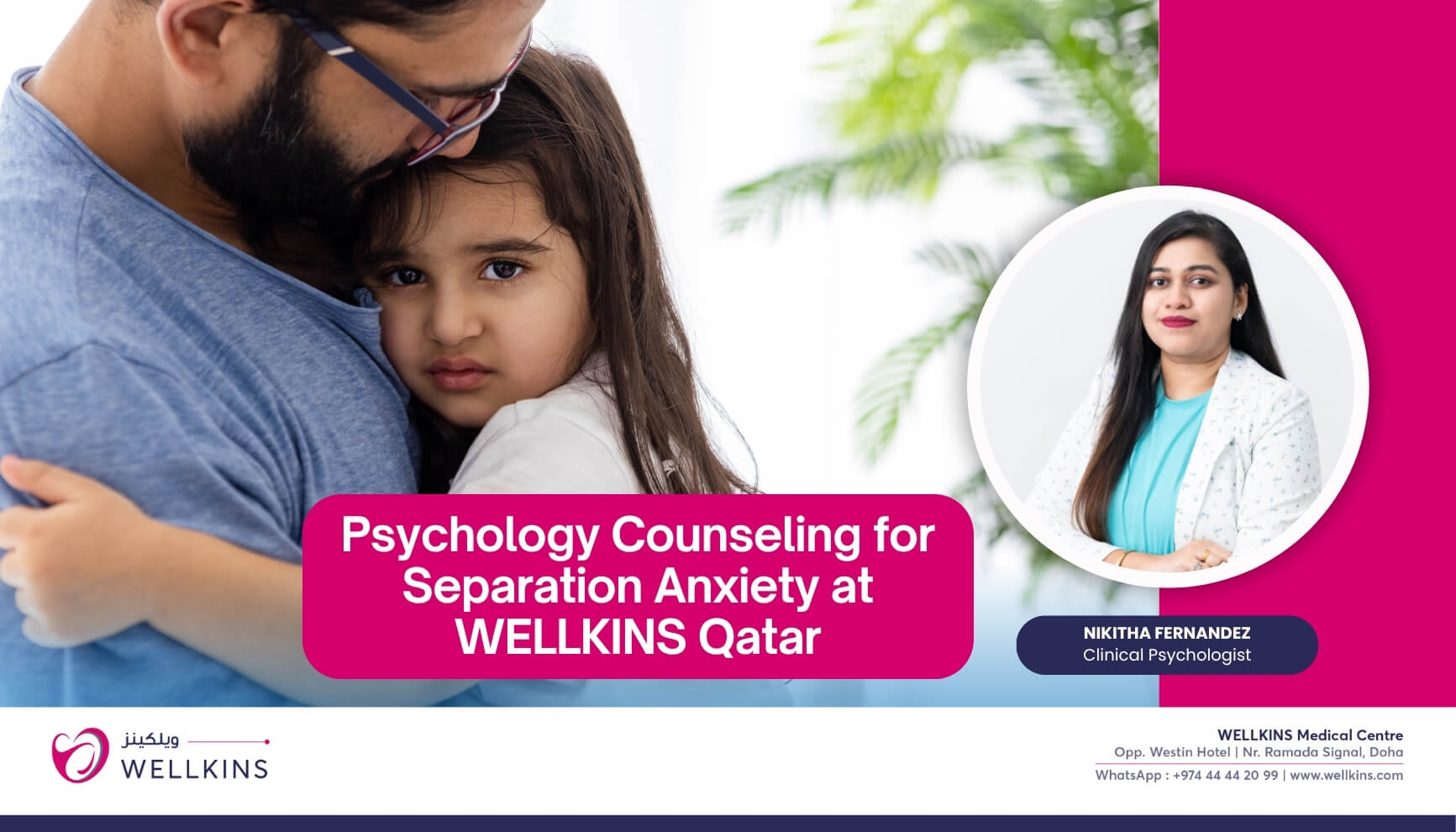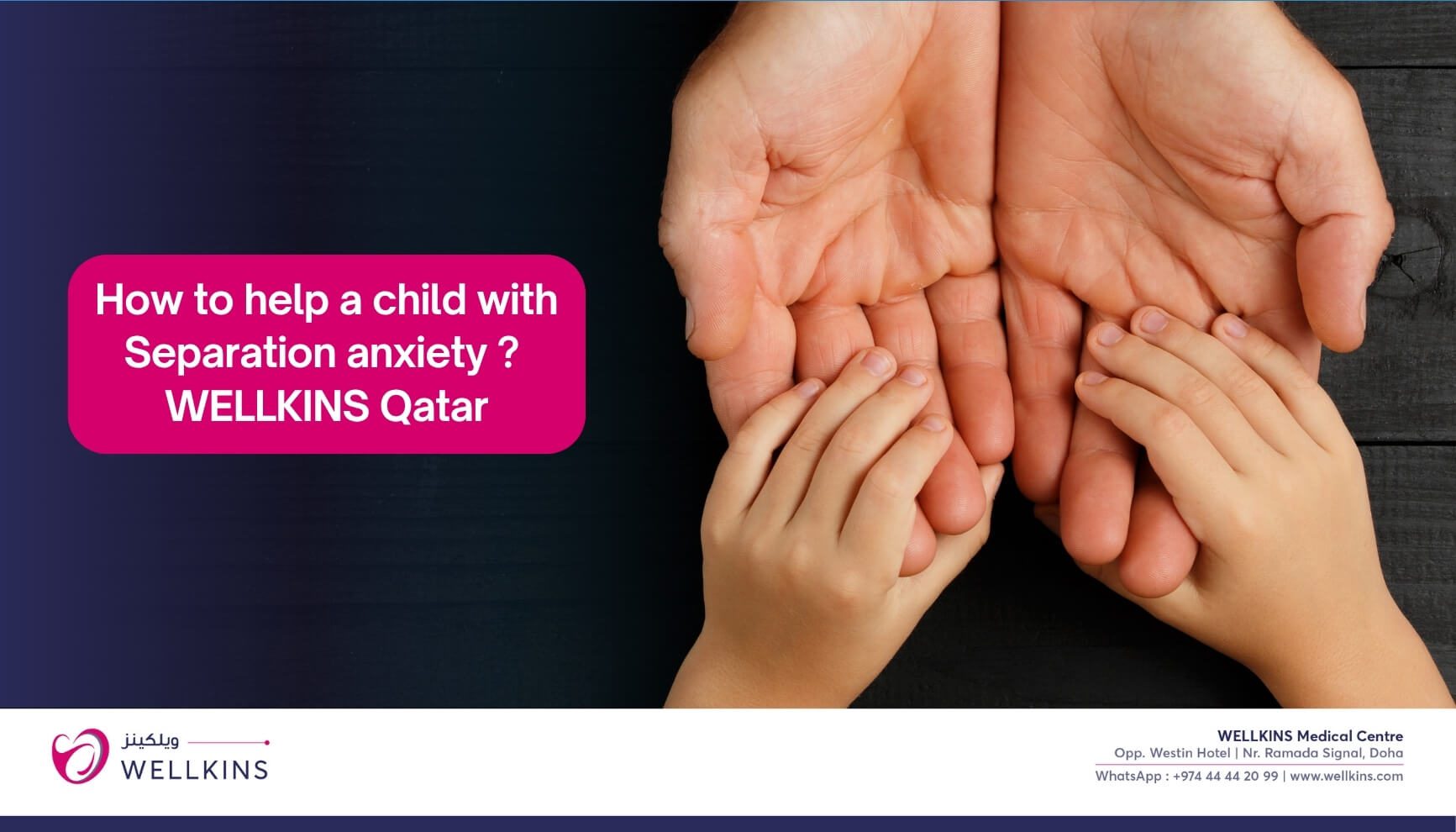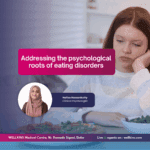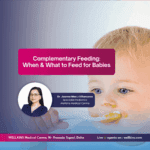Author: NIKITHA FERNANDEZ (Clinical Psychologist – WELLKINS Medical Centre)
Separation anxiety is a complex and multifaceted issue that affects individuals of all ages, from children to adults. It’s a feeling of intense fear or distress when we’re away from our loved ones, and it can significantly impact our daily lives, relationships, and overall well-being. In this blog, we’ll delve into the causes of separation anxiety, explore effective treatment approaches, and discuss self-help strategies that can make a big difference
What is Separation Anxiety?
Separation anxiety is a normal part of child development, but it can become a concern when it persists and interferes with daily life. In adults, separation anxiety can manifest as a persistent fear of being abandoned or separated from loved ones, leading to significant distress and impairment.
Understanding Separation Anxiety: Causes and Effects
Separation anxiety can stem from a combination of genetic, environmental, and attachment factors. For instance:
Genetic predisposition: Individuals with a family history of anxiety disorders may be more prone to developing separation anxiety.
Attachment styles: Insecure attachment styles, such as anxious-preoccupied or fearful-avoidant attachment, can increase the risk of developing separation anxiety.
Environmental stressors: Traumatic events, such as the loss of a loved one or a major move, can trigger separation anxiety.
Parenting behaviors: Overprotective or anxious parenting styles can contribute to the development of separation anxiety in children.
Stress often shows up as physical tension or racing thoughts, but for those with separation anxiety, it’s a unique and unsettling distress. This isn’t just about missing someone; it’s a powerful emotional response to being apart from a significant attachment figure, triggering intense worry, fear, and even physical symptoms.

Effective Treatment Approaches for Separation Anxiety
Fortunately, there are effective treatment approaches that can help individuals manage separation anxiety. Some of the most effective approaches include:
Cognitive Behavioral Therapy (CBT): CBT is a highly effective method that helps individuals identify and challenge their anxious thoughts, develop coping strategies, and gradually become comfortable with separations.
Parent-Child Interaction Therapy (PCIT): PCIT is a type of therapy that focuses on strengthening the parent-child relationship and teaching parents how to respond to their child’s anxiety in a supportive and reassuring way.
Attachment-based interventions: Attachment-based interventions, such as attachment-focused therapy, can help individuals develop a more secure sense of attachment and reduce separation anxiety.
How Counselling Helps in Stress Management
Counselling provides a safe, non-judgmental space for individuals to explore their stressors, understand their emotional responses, and develop effective coping strategies. Here’s how professional counselling can assist in stress management:
1. Identifying Stress Triggers
A counsellor helps individuals recognize the root causes of their stress, whether they stem from external pressures (work, relationships) or internal factors (perfectionism, negative self-talk).
2. Developing Healthy Coping Mechanisms
Rather than resorting to unhealthy habits (like avoidance or substance use), counselling teaches:
- Cognitive Behavioral Therapy (CBT): Challenges negative thought patterns and replaces them with realistic, positive ones.
- Mindfulness & Relaxation Techniques: Breathing exercises, meditation, and progressive muscle relaxation to reduce tension.
- Problem-Solving Skills: Breaking overwhelming issues into manageable steps.
3. Improving Emotional Regulation
Counselling helps individuals process emotions in a constructive way, preventing emotional outbursts or prolonged distress. Techniques such as emotional regulation training and stress inoculation therapy can build resilience.
4. Enhancing Communication & Boundaries
Many stressors arise from interpersonal conflicts. Counselling improves communication skills, helping individuals set healthy boundaries in relationships and workplaces.
5. Preventing Burnout & Promoting Self-Care
Therapists guide clients in prioritizing self-care, work-life balance, and stress prevention strategies to avoid burnout.
Self-Help Strategies to Complement Counselling
In addition to therapy, there are many self-help strategies that can make a big difference. Some helpful strategies include:
Consistent routines: Establishing consistent routines and rituals can provide comfort and reassurance for individuals with separation anxiety.
Transitional objects: Transitional objects, such as a favorite toy or blanket, can provide a sense of security and comfort when separated from loved ones.
Mindfulness practices: Mindfulness practices, such as deep breathing and meditation, can help individuals manage their anxiety and reduce stress.
Journaling: Journaling can be a helpful way to process emotions and reflect on experiences.
Building independence: Gradually building independence and engaging in activities that promote self-confidence and self-esteem can be incredibly helpful.
Separation anxiety is a complex issue that requires compassion, understanding, and effective treatment approaches. By working together to create a more supportive and understanding environment, we can help individuals manage their separation anxiety and develop a more secure sense of attachment. If you’re struggling with separation anxiety, know that you’re not alone, and there is help available. Reach out to a licensed mental health professional today and take the first step towards healing and growth.
Key Takeaways
Separation anxiety affects individuals of all ages and can significantly impact daily life. It’s caused by a combination of genetic, environmental, and attachment factors. Effective treatment approaches include CBT, PCIT, and attachment-based interventions. Self-help strategies like mindfulness, journaling, and building independence can be helpful. Seeking help is a sign of strength, not weakness. Let’s work together to break down the barriers to connection and create a more compassionate and supportive environment for individuals struggling with separation anxiety.
Read more: https://wellkins.com/psychology-counselling/
Disclaimer: This blog is for informational purposes only and should not replace professional medical advice.








